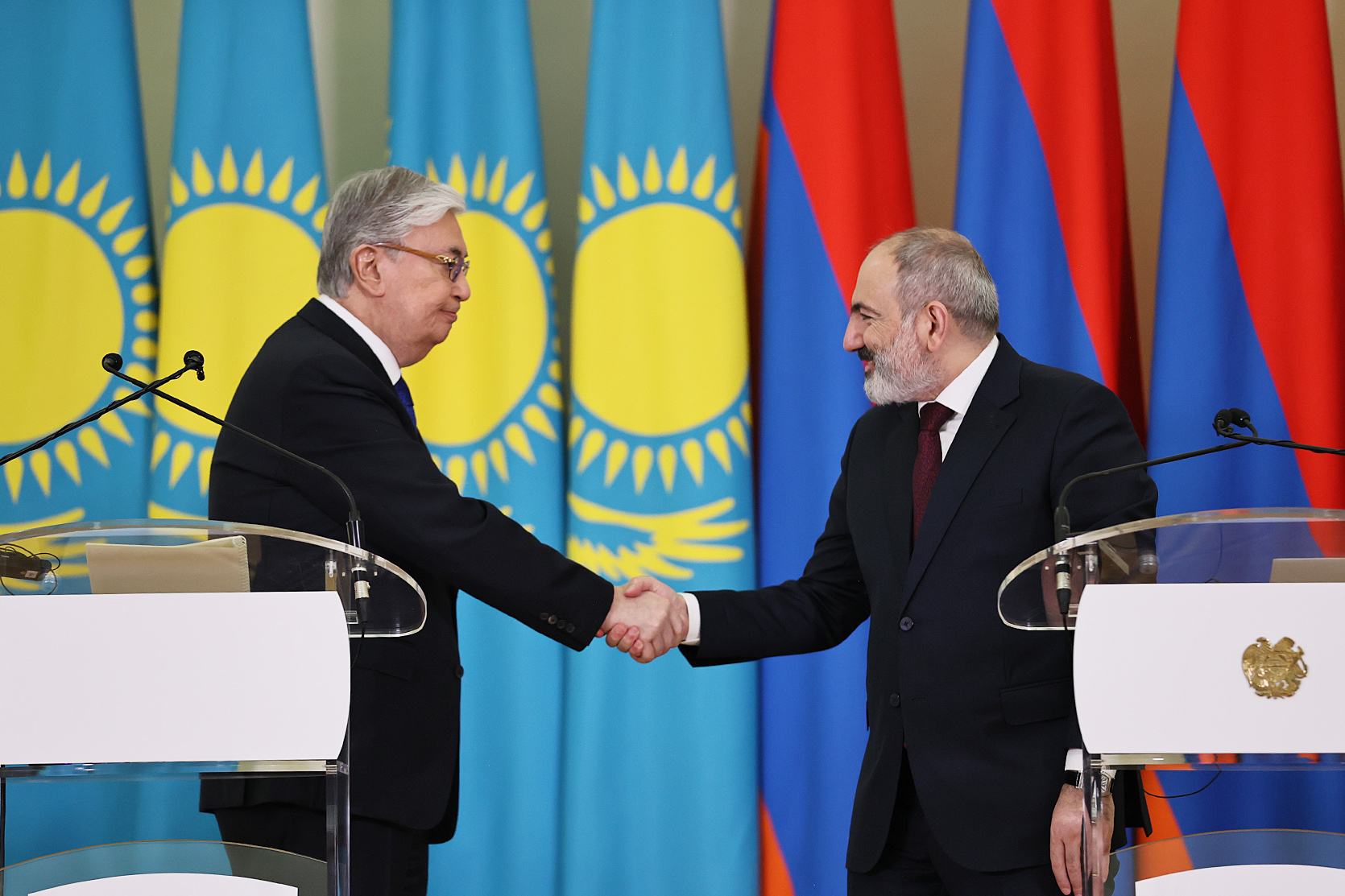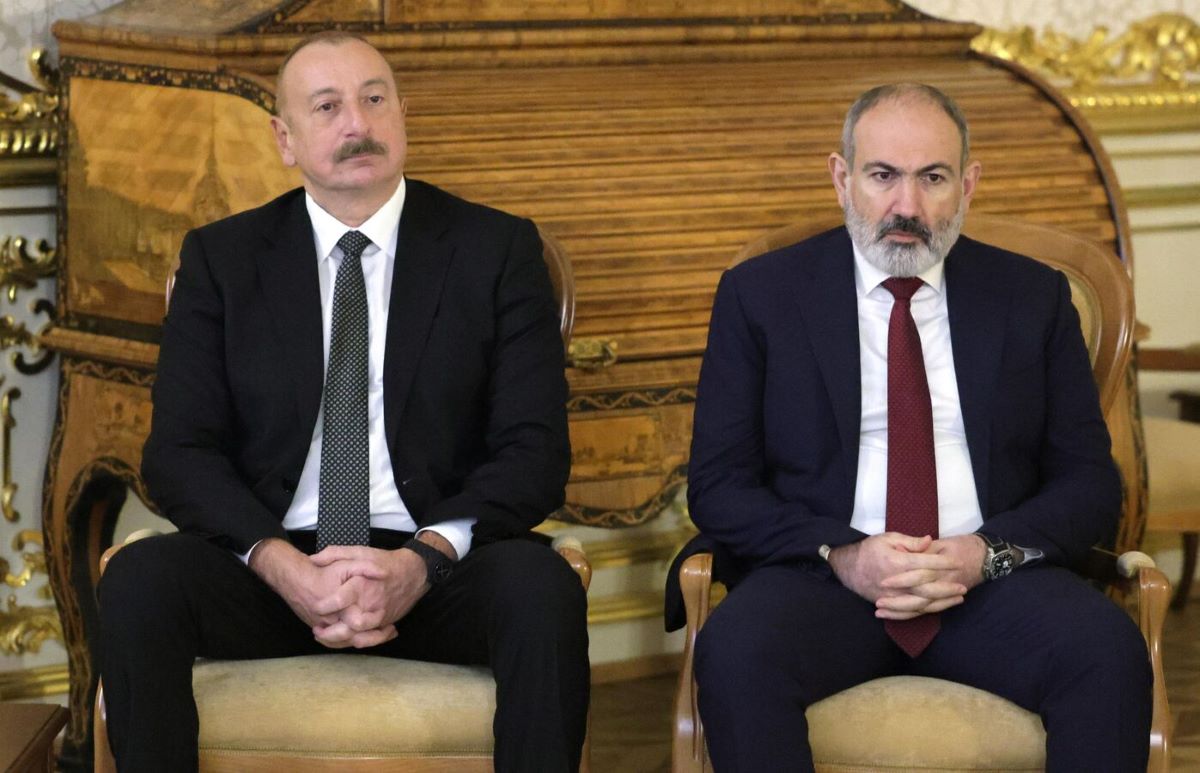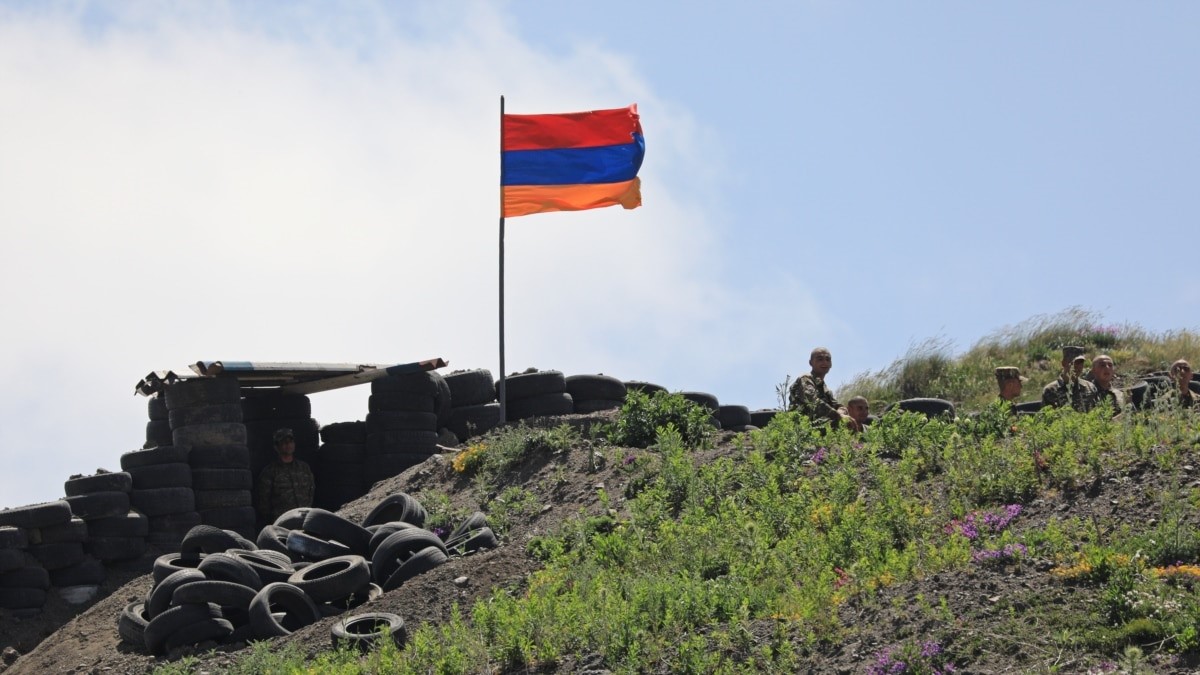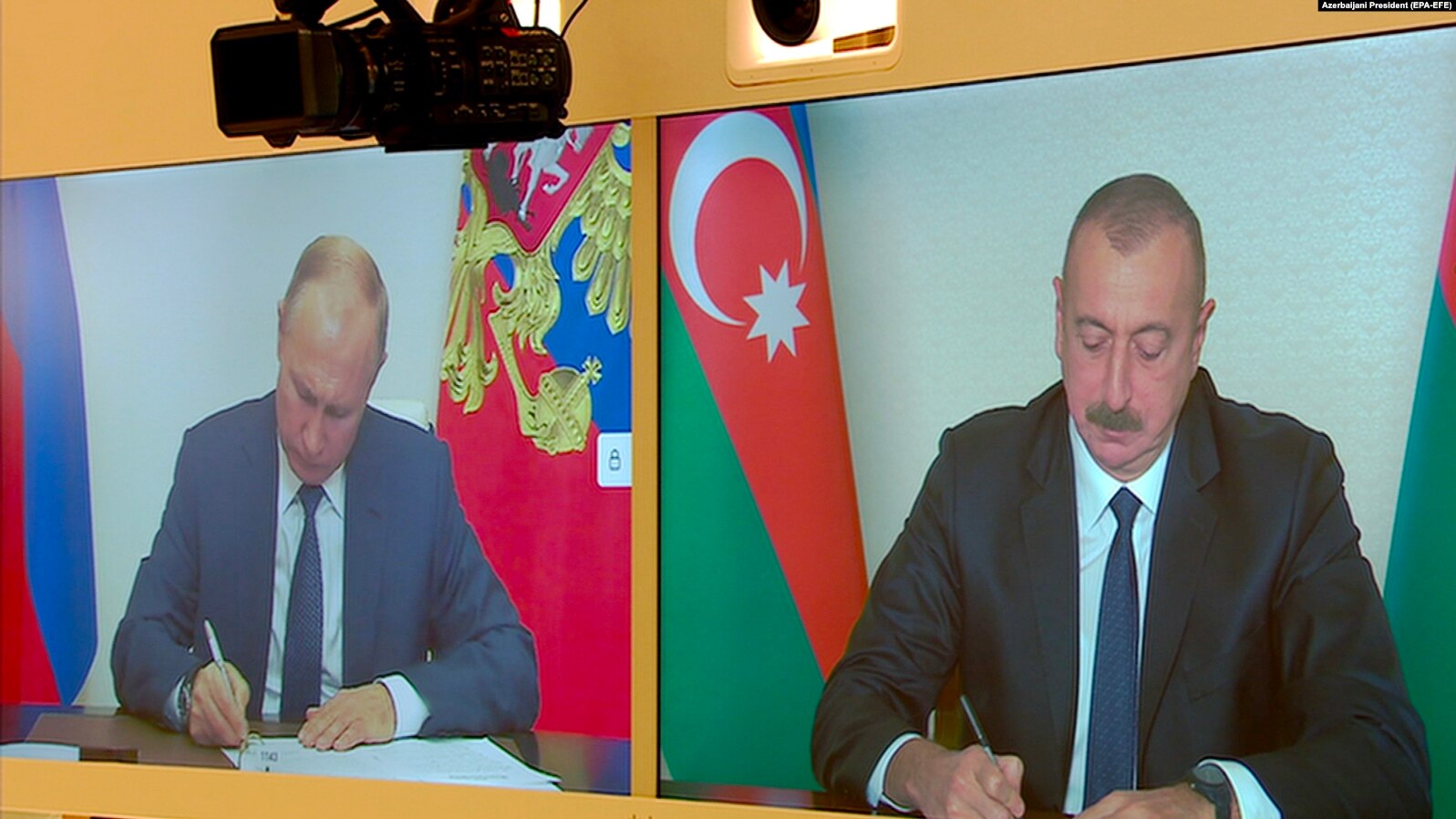Foreign ministers of Armenia and Azerbaijan hold direct talks in Almaty: Expert predictions
Armenia-Azerbaijan foreign ministers talks
Armenian and Azerbaijani foreign ministers will meet in Almaty on May 10. The Armenian Foreign Ministry announced this shortly after the president of Kazakhstan’s visit to Yerevan. President Tokayev offered Kazakhstan as a platform for Armenian-Azerbaijani talks.
Both Baku and Astana stated that this isn’t about mediation, but direct discussions. Foreign ministers will discuss all issues directly.
Some Armenian analysts advocate for promoting the Granada format in Almaty. This format involves Armenia, Azerbaijan, France, and Germany, emphasizing the need for substantive discussions.
The Granada meeting was attended by Armenian PM Pashinyan, French president Macron, German chancellor Scholz, and European Council president Michel. Azerbaijani president Aliyev declined participation, citing France’s biased stance.
The signatories endorsed efforts for normalization based on sovereignty, territorial integrity, and non-use of force principles. They emphasized the need for demarcation based on Soviet military maps, serving as a basis for troop withdrawal, finalizing a peace treaty, and resolving all humanitarian issues.
Others believe substantive discussions, leading to concrete decisions, occur in undisclosed, non-public formats. Thus, the foreign ministers’ meeting itself may not carry much significance.
This encapsulates the known details and Armenian experts’ opinions at this point.
- Pashinyan: ‘External forces want to provoke war in Armenia for the sake of a change of government’
- “Baku used the issue of returning four villages as a trump card,” says Pashinyan
- Territory in exchange for peace: Will Azerbaijan refrain from a new war?
“The Astana proposal is symbolic”
In Yerevan, president Kassym-Jomart Tokayev of Kazakhstan welcomed Armenia and Azerbaijan’s desire to reach a peaceful agreement and offered Kazakhstan as a platform for negotiations.
Following this, the president of Azerbaijan stated that Baku had accepted the offer to host the negotiations platform. President Aliyev emphasized that this was not about mediation.
A similar statement was made by the official representative of the Kazakh Ministry of Foreign Affairs, Aibek Smadiyarov: “The upcoming negotiations will be conducted exclusively between the parties. We are only providing services of goodwill, the so-called good offices.”
Tokayev expressed hope that the meeting would lead to the practical implementation of Armenian-Azerbaijani agreements and the establishment of a strong and long-term peace in the South Caucasus.
“It is symbolic that this important event will take place in Almaty, where the historical Alma-Ata Declaration was signed in December 1991, laying the foundations for the independent development of the CIS countries and affirming the principles of defining interstate borders,” said the president of Kazakhstan.
The Armenian foreign minister expressed “cautious optimism” preliminarily
Armenia’s minister of Foreign Affairs, Ararat Mirzoyan, stated that Armenia is committed to establishing peace in the region.
“We are sincerely, constructively, and in good faith engaged in negotiations. We are confident that achieving a lasting peace is truly in the interests of both countries – Armenia, Azerbaijan, and their peoples. I also want to express cautious optimism regarding the upcoming negotiations,” he told journalists on May 6 during a press conference as part of his visit to Hungary.
An Azerbaijani journalist expressed the view that the exchange of proposal packages in the process of discussing the Armenian-Azerbaijani peace agreement resembles “ping-pong diplomacy.” Mirzoyan responded that “within this ping-pong diplomacy framework, agreements have already been reached on many articles.”
On April 26, Armenia received the latest package of proposals from the Azerbaijani side regarding the peace agreement project. This marks the 9th revision of the text.
The main achievement so far, according to Ararat Mirzoyan, is that both countries have reaffirmed their recognition of each other’s territorial integrity based on the Alma-Ata Declaration of 1991. The parties agreed that demarcation would proceed in accordance with this document.
The Armenian minister hopes that an agreement will be reached in Kazakhstan to reflect these provisions in the peace agreement. However, Baku is not yet agreeing to include this point in the agreement text.
“I can say that after reaching an agreement on this point, we will be very close to a final settlement,” he said.
Comments
The idea of holding a meeting in Kazakhstan aligns with the recently popularized trends of regionalization, promoted by major players in the region, says political analyst Tigran Grigoryan. Their main goal, as the analyst asserts, is to push the West out of the South Caucasus region.
He is confident that the initiator of the Almaty meeting is Baku. Thus, Azerbaijan continues to pursue its intention to conduct bilateral negotiations with Armenia without intermediaries.
“At this stage, the meeting of foreign ministers will not be of great significance. All substantive negotiations take place in other, closed formats, about which society knows little,” Tigran Grigoryan believes.
He suggests that negotiations in Kazakhstan are not indicative of its growing role, but he calls the choice of this country as a venue “interesting.” He notes that Kazakhstan was one of the first intermediary countries in the Karabakh conflict. Grigoryan also recalls the visit of Yeltsin and Nazarbayev to Armenia, Nagorno-Karabakh, and Azerbaijan in 1991, followed by the signing of the Zheleznovodsk Declaration in Russia. This was the first document signed by the parties to the conflict:
“After that, Kazakhstan attempted to become a member of the OSCE Minsk Group, to play a mediating role in Armenian-Azerbaijani border disputes. But these attempts were not very successful.”
Political analyst Armen Petrosyan sees the presence of a new Kazakhstan platform for Armenian-Azerbaijani negotiations positively in terms of diversifying platforms:
“Kazakhstan does not intend to become a mediator. It is only considered as another platform for direct bilateral negotiations. Similar experience was seen in Tbilisi, where the foreign ministers of Armenia and Azerbaijan met.”
In his opinion, the emergence of a new platform has both positive and negative sides for Yerevan.
The positives include the continuity of the settlement process and a significant reduction in the geopolitical competition between Russia and the West for control over the settlement process.
The negative aspect is the risk of non-compliance with agreements reached. Baku has repeatedly demonstrated destructiveness by reneging on commitments. One example is Aliyev’s refusal to attend the meeting in Granada in October 2023.
“If there is no mediator with significant influence, the ability to manage Azerbaijan’s behavior and bring it into a constructive field for Armenia is extremely limited,” believes Armen Petrosyan.
The military-political and geopolitical imbalance in the region also negatively affects the negotiation process. In a bilateral format, “Yerevan and Baku’s positions are not equal,” says the analyst. This explains Armenia’s unilateral concessions and Azerbaijan’s firm stance, refusing to compromise.
Regardless of the meeting location, the expert considers advancing the provisions of the statement adopted in Granada crucial:
“Mainly, it concerns the process of unlocking regional communications, which should stem from conceptual interests. It is necessary to annul dependence on the de facto non-existent document signed on November 9 [the trilateral statement on cessation of hostilities in Karabakh].”
According to point 9 of the trilateral agreement, Azerbaijan demands the provision of a “corridor” for communication with Nakhchivan, i.e., a road that Armenia will not control. Armenian authorities state their readiness to unlock communications but are unwilling to forfeit sovereignty over these territories. Pashinyan reiterated that Armenia is being pressured to make “concessions unrelated to the document’s content.” Additionally, many analysts in Armenia speak of the necessity to annul the statement, which lost relevance after the dissolution of the unrecognized NKR.






















